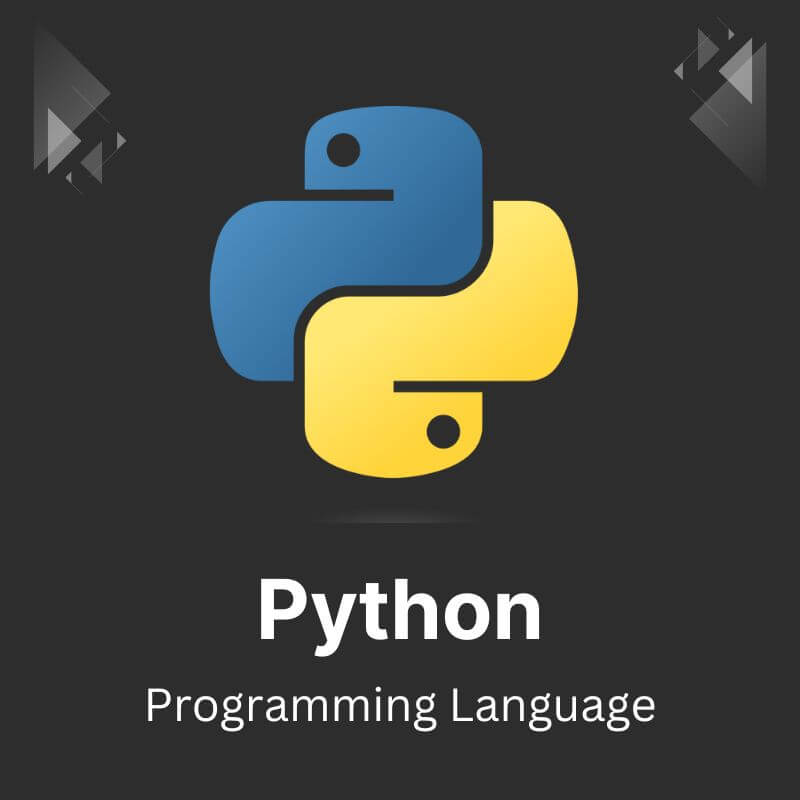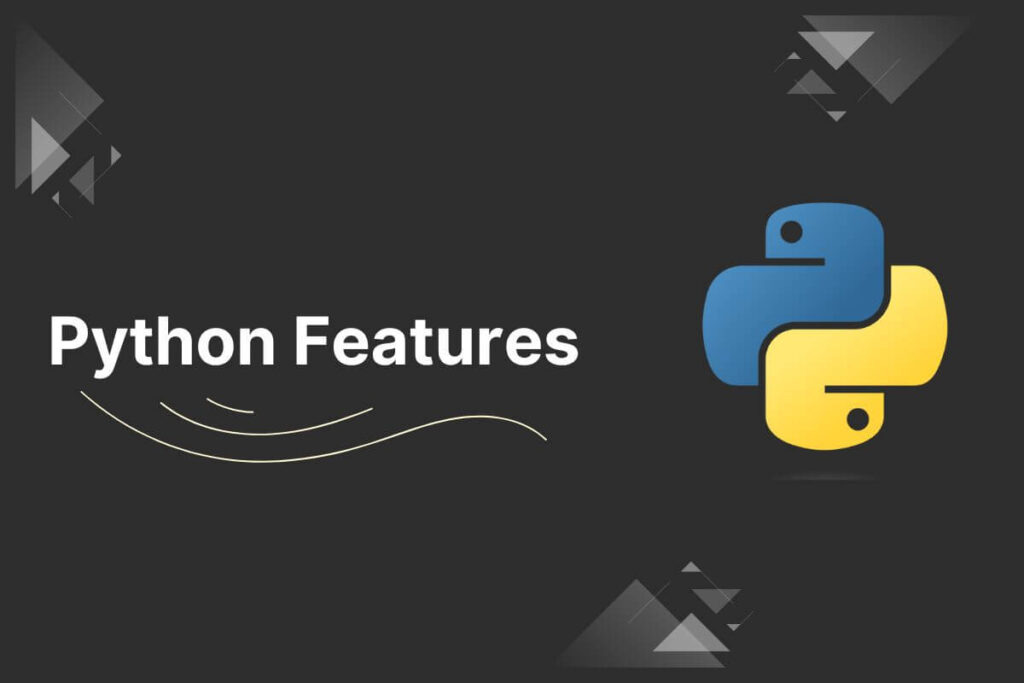In the world of computer languages, Python is a super helpful and powerful tool. It’s easy to understand, can do a lot of different things, and has a big group of people ready to help if you get stuck.
Whether you’re just starting to learn to code or you’ve been doing it for a while, Python is a great option. Let’s take a closer look at what makes Python special and how it can make your coding projects even better.
Features of Python
Let’s embark on a journey to explore its defining features, unlocking its potential for your coding endeavors.
1. Beginner-Friendly
Imagine learning a language that reads almost like plain English. Python is easy to learn because it uses simple and easy-to-read instructions, without a bunch of confusing symbols.
This makes it a great starting point for anyone who wants to get into programming. You won’t get stuck trying to understand complicated rules or weird words; instead, you can quickly understand the basics and start solving problems right away.
Even if you don’t have much experience with coding, Python’s user-friendly approach lets you confidently take your first steps into the world of programming.
2. Interpreted and Dynamic
Say goodbye to waiting for your code to compile! Python works differently – it’s like having someone read and follow your instructions one line at a time. This means you get feedback right away and fixing mistakes is easy.
You can try things out, make changes, and improve your code without a lot of waiting or frustration.
Also, in Python, you don’t have to tell the computer what kind of information you’re using before you start – it figures it out as it goes. This makes coding more straightforward, especially if you’re just starting out, and it still keeps things secure by checking for mistakes.
3. Object-Oriented Programming
In Python, when we talk about breaking down big tasks into smaller, reusable parts, we use something called “object-oriented programming.”
It’s like having a set of tools – things like classes, objects, inheritance, and polymorphism – that help you build organized and easy-to-update programs. Whether you’re making intricate games or working on data analysis projects, using object-oriented programming in Python lets you create efficient and well-organized code.
4. Extensive Standard Library
Think of it like having a treasure chest full of tools you can use right away. That’s what the Python standard library is like. It has everything from dealing with files and networks to organizing data and creating things for the web.
This big collection gives you a ton of pieces you can use when working on your projects. Instead of starting from scratch, you can use these pre-made parts and spend more time on your ideas and solving problems, making your work easier and faster.
5. Community and Ecosystem
Don’t worry, you’ve got friends on your Python adventure! There’s a big group of enthusiastic developers worldwide who are always willing to help out or share their knowledge.
If you run into a problem or need ideas for your projects, you can find lots of help on online forums, tutorials, and documentation. Plus, there’s a whole bunch of extra tools and features created by other people that you can use with Python.
It’s like having a huge toolbox that makes Python useful for all sorts of things, from fancy machine learning to building websites with frameworks like Django and Flask.
6. Portable and Cross-Platform
You only need to write your code once, and it will work on any system! Python code can run on Windows, macOS, and Linux without needing to change anything. This makes it easy for you to create apps that lots of different people can use, no matter what type of computer they have.
7. Embeddable and Extensible
If you want to use Python’s abilities in other apps or places, it’s simple! You can easily add Python to software written in different languages. Plus, with lots of frameworks and libraries available, you can customize Python to do exactly what you need for different tasks and situations.
8. Automation Maestro
Whether you’re making everyday tasks easier or creating intricate processes, Python is the top choice for automation. It’s great at talking to operating systems, web browsers, and other apps, making it perfect for automating all sorts of tasks.
When you let Python handle the routine stuff, you save time and resources, allowing you to focus on more important and strategic activities.
9. Data Science and Machine Learning Champion
In the age of using data to make decisions, Python is the go-to hero for data science and machine learning. It has strong tools like pandas, NumPy, Scikit-learn, and TensorFlow that help you analyze and work with data, and build models.
Whether you’re looking at trends on social media or creating applications with artificial intelligence, Python gives you the perfect tools for the data-driven world.
10. Continuous Innovation
The folks in the Python community are always working hard to make the language better. They regularly bring out updates, add new features, and keep things moving fast. This means Python stays right on top of the latest technology trends, so you can use all the newest and coolest stuff in your projects.
Python is a great language because it’s easy to use, adaptable, and can do a lot of powerful stuff. It might be simple, but it’s super capable and can be used for all kinds of applications.
The fact that more and more people are using Python for things like data science, AI, and DevOps shows that it’s a strong, all-around language that can handle different types of programming tasks.


